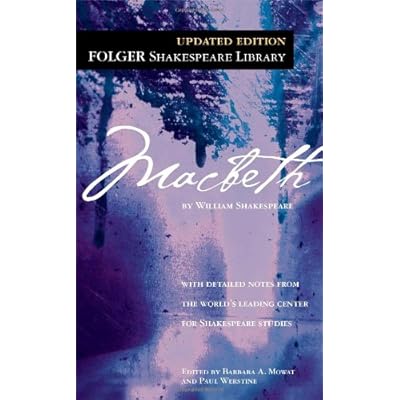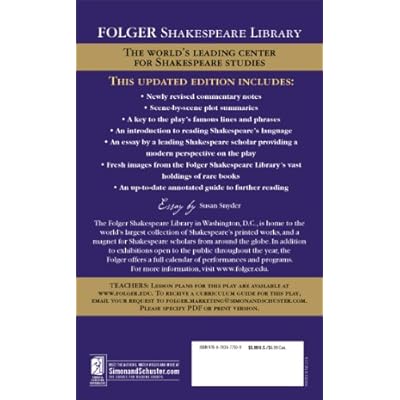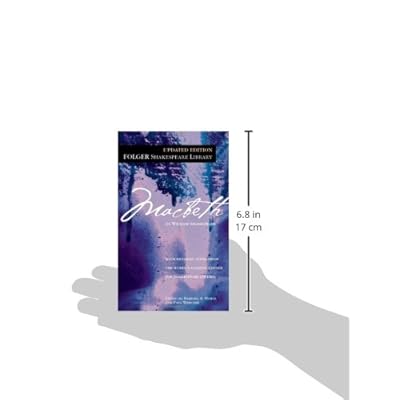Macbeth (Folger Shakespeare Library)
Category: Books,Literature & Fiction,Dramas & Plays
Macbeth (Folger Shakespeare Library) Details
Review ""Macbeth" is a blast...ghoulish...beguiling...sardonic...an expression of how captivating an evening of crackling Shakespeare can be." -- Peter Marks, "The Washington Post""The explosive and overwhelming effect of a truck bomb...this horrific, riveting "Macbeth" ought to be seen by as many people as possible." -- Terry Teachout, "The Wall Street Journal" Read more About the Author William Shakespeare was born in April 1564 in the town of Stratford-upon-Avon, on England’s Avon River. When he was eighteen, he married Anne Hathaway. The couple had three children—an older daughter Susanna and twins, Judith and Hamnet. Hamnet, Shakespeare’s only son, died in childhood. The bulk of Shakespeare’s working life was spent in the theater world of London, where he established himself professionally by the early 1590s. He enjoyed success not only as a playwright and poet, but also as an actor and shareholder in an acting company. Although some think that sometime between 1610 and 1613 Shakespeare retired from the theater and returned home to Stratford, where he died in 1616, others believe that he may have continued to work in London until close to his death.Barbara A. Mowat is Director of Research emerita at the Folger Shakespeare Library, Consulting Editor of Shakespeare Quarterly, and author of The Dramaturgy of Shakespeare’s Romances and of essays on Shakespeare’s plays and their editing.Paul Werstine is Professor of English at the Graduate School and at King’s University College at Western University. He is a general editor of the New Variorum Shakespeare and author of Early Modern Playhouse Manuscripts and the Editing of Shakespeare and of many papers and articles on the printing and editing of Shakespeare’s plays. Read more

Reviews
There are many versions of Shakespeare's play that give excellent annotations, and as far as that goes, I like the layout of the book. But the line numbers are done wrong. This will not matter to many, and if you don't care about line numbers then this will be a good book for you. I teach English and spend a couple of class periods explaining how the numbering works and how two or three actors can each have a single part of a single line of poetry. None of that lesson works with this book except to point out how even editors can get it wrong or don't really care. Still I want to emphasize that if you are not picky about line numbers then this is a 5-star book for you--good intro and good materials at the back of the book.




